Did you know that in 2023, over 20% of adults in the United States tried at least one nootropic supplement—often to simultaneously boost cognitive function and enhance their appearance? As the multi-billion dollar dietary supplement market continues to skyrocket, nootropics are no longer the secret of Silicon Valley insiders or academic high-achievers. With promises ranging from sharper focus to glowing skin, these so-called “smart drugs” are reshaping how we view self-care. This in-depth guide unravels the latest science and practical advice behind nootropics for both beauty and brain power, helping you make informed, safe, and effective choices.
Unlocking the Potential of Nootropics: Surprising Facts and Recent Discoveries
A record number of adults in the United States are turning to nootropics and smart drugs—some seeking cognitive enhancers, others desiring beauty benefits.

"From Silicon Valley entrepreneurs to skincare aficionados, nootropics are reshaping the landscape of self-improvement."
What You'll Learn About Nootropics
The science behind nootropics and how they work
Natural nootropics vs. synthetic smart drugs
Nootropic supplements for beauty and cognitive function
Benefits, usage, and safety of popular cognitive enhancers
Key side effects and controversies
The future of nootropics in dietary supplement markets
Understanding Nootropics: Definitions and Historical Context
What Are Nootropics and Smart Drugs?
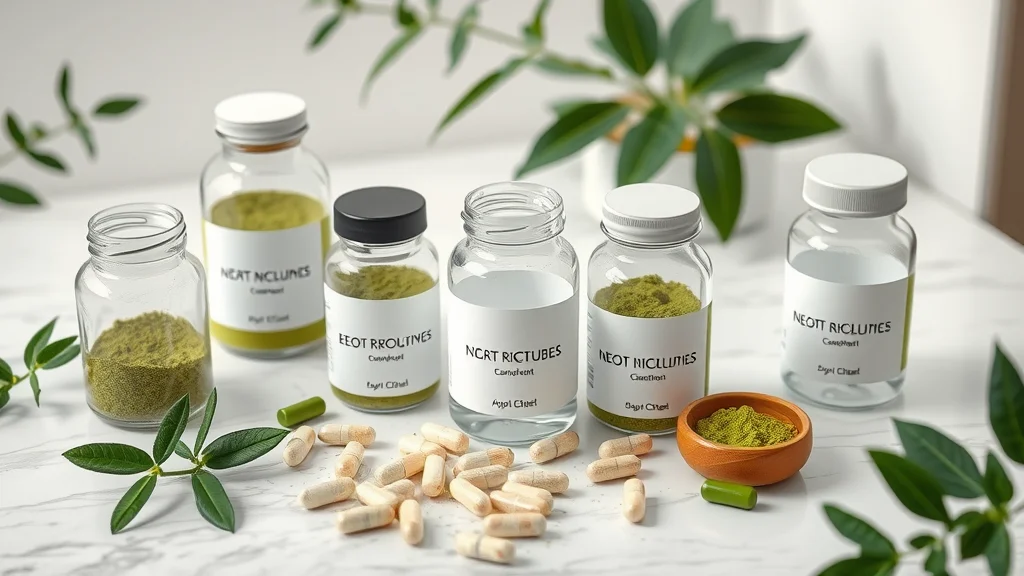
Definitions of nootropics, cognitive enhancers, and smart drug
Distinction between prescription and natural nootropics
The term nootropics refers to substances—both natural and synthetic—that are known or believed to improve cognitive functions such as memory, attention, and information processing in healthy people. Commonly described as cognitive enhancers, nootropics range from herbal extracts like Bacopa monnieri and Ginkgo biloba to prescription medications like modafinil and Adderall, sometimes labeled as smart drugs. The primary distinction lies in their origins and regulation: prescription drugs are typically intended for diagnosed medical conditions (such as ADHD), while natural nootropics and dietary supplements are more accessible, but less strictly regulated. As more individuals strive for optimized brain power and beauty, understanding what qualifies as a nootropic—and the differences between these categories—is essential for informed, safe supplementation.
The Evolution of Cognitive Enhancers
Key historical milestones
Rise of dietary supplements and nootropic supplements in the United States
The quest for improved mental performance is not new. From ancient herbal tonics to the modern surge in dietary supplements, cognitive enhancers have played a pivotal role in human health traditions. In the United States, synthetic smart drugs gained prominence in the mid-20th century, initially for medical use. However, the last two decades have seen explosive growth in over-the-counter nootropic supplements targeting both students and working professionals. Many users now blend traditional herbal remedies with modern forms, seeking a holistic edge for both cognitive and aesthetic wellness. This evolution has diversified the spectrum of available nootropics, making the market as complex as it is promising.
How Do Nootropics Work?
Mechanism of Action: How Nootropics Influence Brain and Beauty
Neurotransmitter support and neuroprotection
Skin health connections: Antioxidant and anti-inflammatory effects
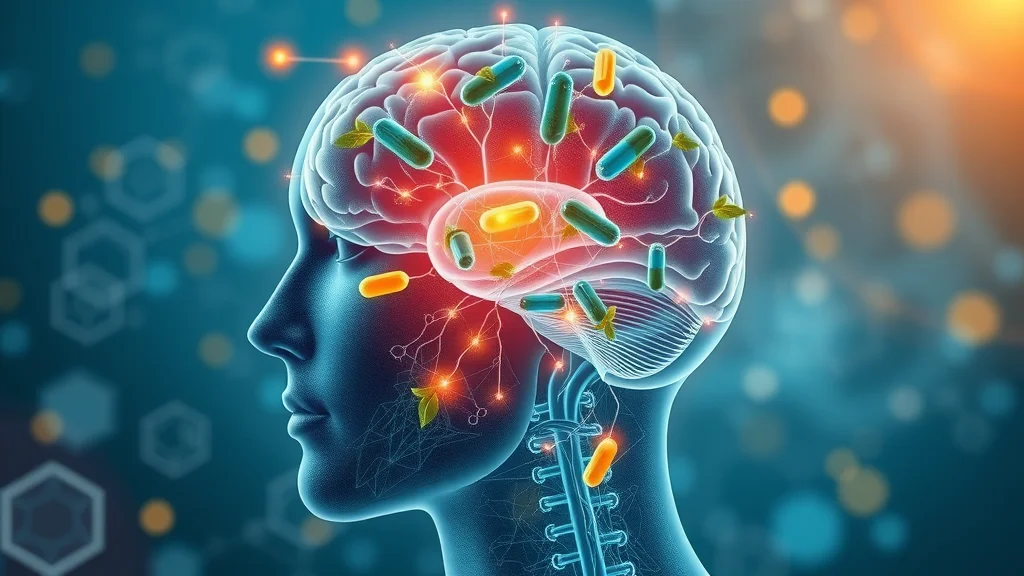
At their core, nootropics interact with the brain’s chemistry to support neural pathways, optimize neurotransmitter levels, and provide neuroprotection. Substances like Bacopa monnieri and lion’s mane mushroom, for example, have shown potential to enhance synaptic plasticity and support short- and long-term memory. Meanwhile, numerous dietary supplements rich in antioxidants—such as vitamin E or polyphenols—also exert significant anti-inflammatory and skin-brightening effects. These antioxidant compounds combat free radicals, which damage both brain and skin cells, and may thus contribute to improved skin elasticity, reduced signs of aging, and overall radiance. The cutting-edge science now increasingly views cognitive and aesthetic wellness as intertwined, with the right nootropic supplement offering both brain-boosting and beauty benefits.
Exploring Natural Nootropics: Powerful Ingredients for Beauty and Cognitive Enhancement
Bacopa Monnieri: A Popular Natural Nootropic
Research on Bacopa Monnieri as a nootropic supplement
Beauty benefits: Skin and hair support

Bacopa monnieri stands out as one of the most researched natural nootropics for cognitive function. Multiple studies indicate that Bacopa can improve memory, support information processing, and may even provide neuroprotective effects. But its role extends beyond the brain: Bacopa’s potent antioxidants are also linked to enhanced skin vitality and hair strength, likely due to reduced oxidative stress and inflammation. Many nootropic supplements now include Bacopa specifically for its dual-purpose appeal. These combined benefits make Bacopa a versatile choice for those seeking both beauty and brain-boosting outcomes. However, as with all supplements, individual results may vary, and further research is needed to refine dosage recommendations and confirm long-term safety for healthy people.
Other Herbal and Dietary Supplements With Nootropic Effects
Ginkgo biloba, Rhodiola rosea, Lion’s mane, and more
Comparison of efficacy and safety
In addition to Bacopa monnieri, herbal and dietary supplements like Ginkgo biloba, Rhodiola rosea, and lion’s mane mushroom have garnered attention as cognitive enhancers and anti-aging agents. Ginkgo biloba is lauded for its ability to improve blood flow to the brain, while Rhodiola rosea may increase mental stamina and reduce fatigue. Lion’s mane is notable for supporting cognitive function and nerve growth, showing promise in both animal models and human trials. Compared to prescription smart drugs, these natural nootropics generally have fewer reported side effects, but potency and effectiveness can vary based on formulation, dose, and source. For those prioritizing safety and holistic wellness, a well-chosen nootropic supplement based on natural ingredients can deliver a positive effect for both mind and appearance.
Synthetic Smart Drugs vs. Natural Nootropic Supplements
Prescription Smart Drugs and Their Side Effects
Typical medications (modafinil, Adderall, etc.)
Intended use, abuse, and legal considerations
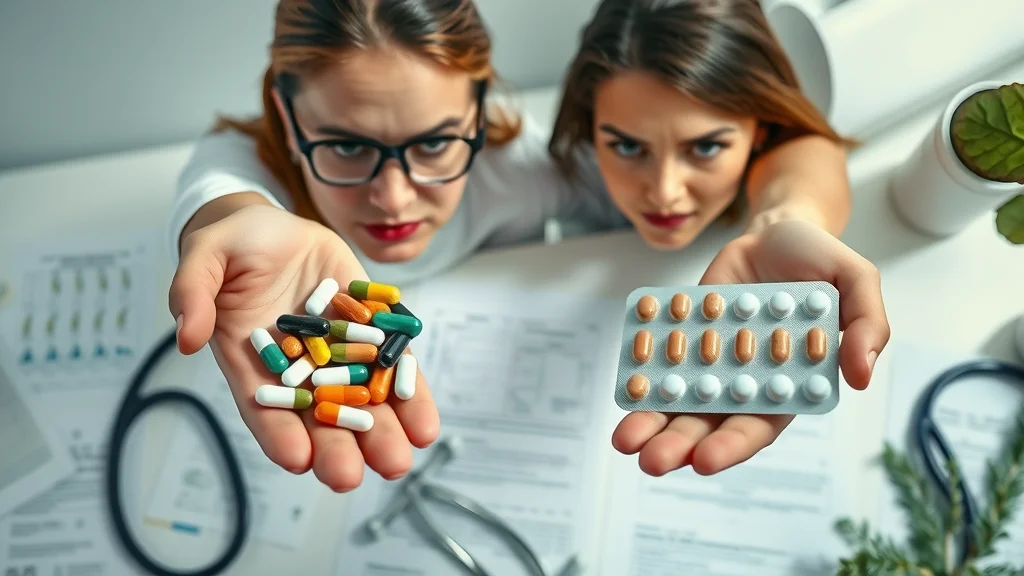
Prescription drugs like modafinil and Adderall are sometimes informally classified as nootropics due to their effects as cognitive enhancers. However, these medications are intended to treat diagnosed conditions such as narcolepsy or ADHD, and their off-label use comes with notable risks. While they can significantly enhance focus and attention in some college students or professionals, high doses and long-term use may result in dependency, cardiovascular complications, and other common side effects, including increased blood pressure and sleep disturbances. The United States tightly regulates these substances, and their use without a prescription is illegal and potentially dangerous. Users seeking mental performance boosts are often better served by safe, well-studied dietary supplements and natural nootropics, which, while milder, pose fewer severe risks for healthy people.
Comparing Safety, Effectiveness, and Accessibility
Nootropic Type |
Common Sources |
Onset/Duration |
Effectiveness |
Safety Profile |
Legal Status (US) |
|---|---|---|---|---|---|
Natural Nootropics |
Bacopa, Ginkgo, Lion’s mane |
Gradual/Weeks |
Mild to moderate |
Generally safe, mild side effects |
OTC supplements |
Smart Drugs (Rx) |
Modafinil, Adderall |
Rapid/Hours |
Strong (medically supervised) |
Higher risk; dependency |
Prescription-only |
Dietary Supplements |
Choline, Omega-3, L-theanine |
Varies |
Mild, generally supportive |
Safe for most |
OTC supplements |
Nootropic Supplement Stacks |
Blends of above types |
Varies |
Synergistic or cumulative |
Depends on ingredients |
OTC or prescription |
Benefits of Nootropics for Cognitive and Aesthetic Enhancement
Cognitive Enhancers: Focus, Memory, and Mental Performance
Enhancements in attention, learning, and mental stamina
Research overview and meta-analyses

Modern studies consistently show that nootropics—both natural and synthetic—can yield measurable improvements in cognitive function for certain populations. These cognitive enhancers have been shown to aid information processing, boost attention, and improve memory, especially during demanding tasks or periods of sustained focus. Compounds like lion’s mane and Bacopa monnieri are particularly studied for their long-term memory support, while smart drugs like modafinil are known for providing acute boosts in mental performance. Notably, even healthy people report a positive effect—though the most dramatic gains tend to occur in sleep-deprived or high-pressure scenarios such as finals week for a college student. Still, research is needed to determine optimal dosing, duration, and whether chronic use yields lasting benefits or unforeseen side effects.
Beauty Benefits Linked to Nootropics
Effects on skin radiance, elasticity, and aging
Nutritional links between cognitive enhancers and dermatological health

Emerging research reveals that certain nootropic supplements don’t stop at improving brain power—they can also positively impact skin health and beauty. Many nootropics, especially those derived from plants or herbs, are rich in antioxidants that help to neutralize free radicals and support skin’s natural defense systems. For example, Bacopa monnieri’s antioxidant properties may reduce inflammation, promoting smoother, more elastic skin and potentially slowing visible signs of aging. Nutrients commonly found in cognitive enhancers—such as vitamins C and E, omega-3 fatty acids, and polyphenols—further boost collagen production and hydrate skin from within. As a result, those taking well-formulated nootropic supplements often report visible improvement in complexion, radiance, and resilience. While not a substitute for dermatological care, nootropics serve as an innovative complement to comprehensive beauty routines.
Risks and Side Effects of Nootropics
Common Side Effects: What to Watch Out For
Adverse reactions to nootropic supplements, dietary supplements, and smart drugs
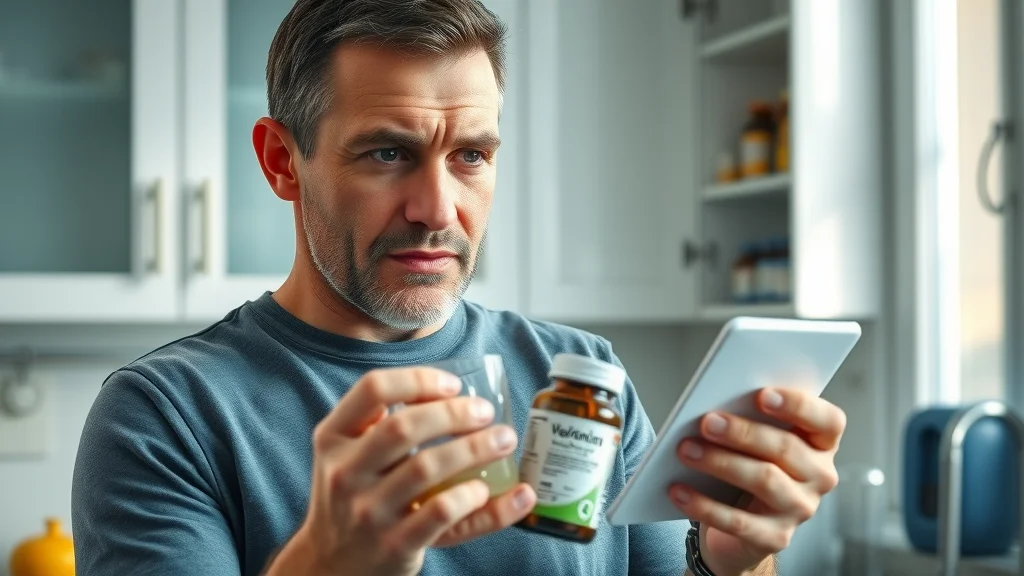
Despite their potential, nootropics are not without risk. Common side effects vary with the type of supplement and individual sensitivity. While most dietary supplements and natural nootropics cause only mild effects such as digestive upset or headache, prescription smart drugs can pose more serious dangers: increased heart rate, high blood pressure, sleep disturbances, and risk of dependency. Even otherwise healthy people may experience adverse reactions from high doses or when combining multiple supplements—a practice known as “stacking.” Those with underlying health conditions, such as high blood pressure, should consult a healthcare professional before using any nootropic supplement, as even seemingly harmless compounds can interact with medication or exacerbate health risks. Responsible use is key to maximizing benefits while minimizing potential downsides.
Guidance on Safe Use and Minimizing Risk
Dosage, stacking, and professional supervision
Regulatory status in the United States and abroad
"While nootropics hold promise, users must be aware of potential side effects and the lack of long-term research." —Renowned Nutrition Scientist
Safe and successful use of nootropics depends on several best practices. Start with a low dose, avoid stacking multiple high-potency ingredients, and always check that products are manufactured by trustworthy brands with third-party certifications. Because regulations for dietary supplements in the United States can be less strict than for prescription drugs, quality assurance is paramount. Always consult with a healthcare provider—especially when using prescription smart drugs or if you have existing health concerns. Internationally, regulations differ widely; what’s legal and safe in one country may not be in another. As the market evolves, ongoing vigilance, critical evaluation of marketing claims, and personal health monitoring are crucial to reduce risks and ensure sustainable wellness.
Controversies, Myths, and Public Perception of Nootropics
The Nootropics Debate: Efficacy, Ethics & Marketing
Overstated claims and misinformation
Celebrity endorsements and the role of the dietary supplement industry

The mainstream buzz surrounding nootropics has bred both excitement and skepticism. While many users tout impressive results, critics point to overstated marketing claims, a lack of large-scale long-term research, and the blurring of lines between legitimate supplements and over-hyped “miracle pills.” Celebrity endorsements and influencer marketing often exaggerate the potential of certain dietary supplements without sufficient backing from peer-reviewed studies. The dietary supplement industry, largely self-regulated, is sometimes slow to flag safety issues or correct misinformation, creating confusion for consumers. Ultimately, those interested in nootropics must separate myth from scientifically validated fact and remain wary of bold claims that promise more than current research supports.
Legal and Regulatory Perspectives
FDA regulation of dietary supplements, smart drugs, and cognitive enhancers
International differences with focus on the United States
In the United States, dietary supplements are regulated under the Dietary Supplement Health and Education Act (DSHEA), meaning manufacturers are responsible for safety but pre-market FDA approval is not required. Prescription smart drugs (e.g., Adderall, modafinil) are regulated as controlled substances, available only with a valid prescription. Internationally, regulations range from strict prescription-only rules (as in parts of Europe) to relatively liberal supplement access in countries like Canada and Australia. Consumers must check local and federal laws before purchasing, importing, or using any nootropic, especially if stacking several types. Understanding these regulatory nuances helps users remain compliant, safe, and empowered in their supplement choices.
How to Choose the Right Nootropic Supplement
Assessing Quality and Effectiveness
What to look for in a nootropic supplement
Reputable brands and certifications
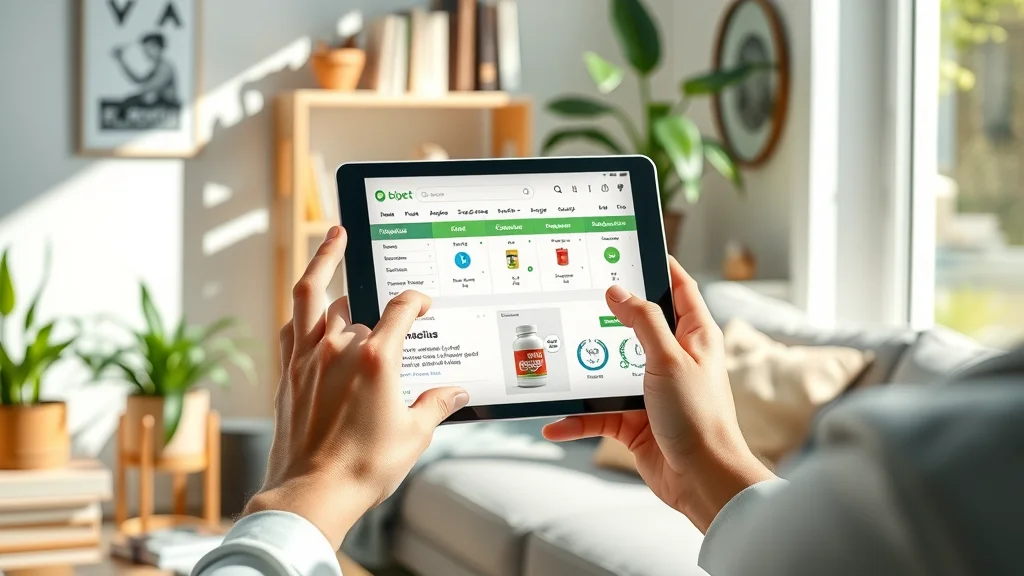
Choosing the right nootropic supplement starts with scrutinizing quality and evidence. Look for products that provide full ingredient transparency, science-backed formulas, and robust third-party certifications (such as NSF or USP). Avoid blends with proprietary dosages or unverified claims. Reputable brands not only follow Good Manufacturing Practices (GMP) but also publish independent lab tests confirming purity and potency. Seek out customer reviews and expert endorsements, but always weigh anecdotal evidence against scientific consensus. A high-quality nootropic supplement should also list potential side effects upfront, prioritize sustainable sourcing, and align with your unique wellness goals—whether cognitive enhancement, skin health, or both.
Best Practices for Sourcing and Using Nootropics
Dos and don'ts for safety and success
How to stack nootropics responsibly
To maximize success and minimize risk when using nootropic supplements or smart drugs, follow these essential guidelines:
DO: Start with one ingredient at a time, follow recommended dosages, and keep track of your physical and mental responses.
DON'T: Mix multiple potent nootropics or drugs without expert guidance—stacking increases side effect risks.
DO: Consult a knowledgeable healthcare provider, especially if you are on other medications or have underlying health issues.
DO: Regularly review the latest research — the field evolves rapidly, and recommendations may change.
Responsible stacking (combining complementary supplements) can offer synergistic effects for both cognitive function and beauty, but should only be undertaken after thorough investigation and professional supervision.
Table: Popular Nootropics and Their Evidence for Beauty and Brain Power
Nootropic |
Cognitive Evidence |
Beauty/Skin Evidence |
Safety Rating |
Side Effects |
|---|---|---|---|---|
Bacopa monnieri |
Strong for memory, focus |
Moderate (antioxidant, anti-inflammatory) |
High |
Mild digestive upset at high doses |
Ginkgo biloba |
Moderate for attention, blood flow |
Mild (circulatory support) |
High |
Headache, GI upset |
Lion’s mane mushroom |
Emerging (nerve growth, memory) |
Potential (anti-inflammatory) |
High |
Rare mild allergy |
Modafinil (Rx) |
Strong for alertness, wakefulness |
N/A |
Moderate |
Insomnia, elevated blood pressure |
Rhodiola rosea |
Good for mood, sustained energy |
Weak, mostly anecdotal |
High |
Dry mouth, jitteriness |
Expert and User Insights on Nootropics
"Nootropic supplements have revolutionized both cognitive performance and holistic wellness, but personalized approaches are key." —Board-Certified Neurologist
Testimonials from users who blend natural nootropics and dietary supplements for beauty and brain
Brief interview highlights with dermatologists and neuroscientists
Many users report enhanced productivity and visible improvements in skin and hair after consistently supplementing with a mix of natural nootropics like Bacopa monnieri and lion’s mane. “After three months, my focus at work improved and my skin appeared noticeably clearer,” says one marketing executive. Dermatologists note growing interest in supplements that support both cognitive and skin health, cautioning that “effects are individual and should always be considered alongside a healthy lifestyle.” Neuroscientists also emphasize that while nootropics can offer a measurable positive effect, the strongest outcomes come from combining smart supplementation with sound nutrition, sleep, and stress management.
People Also Ask About Nootropics
What does a nootropic do?
Nootropics act as cognitive enhancers by improving memory, attention, and mental clarity. Some also support skin health through antioxidant properties.
Nootropics help the brain process information faster, enhance alertness, and support mental performance in healthy people. Certain ingredients, like Bacopa monnieri, combine brain benefits with antioxidants that promote radiant skin, making them unique among dietary supplements.
What is the most effective nootropic?
Effectiveness varies, but Bacopa monnieri, Rhodiola rosea, and certain prescription smart drugs have strong research backing for cognitive and beauty benefits.
While Bacopa monnieri boasts notable support for memory improvement, Rhodiola rosea is renowned for reducing fatigue and stress. Prescription smart drugs such as modafinil are highly potent but require medical supervision and carry more risk. For most users seeking balanced results with minimal side effects, well-formulated natural nootropics are the best starting point.
Are nootropics like Adderall?
Adderall is a prescription stimulant, while most nootropics and dietary supplements offer different, often milder, cognitive enhancement without addictive risks.
Adderall is designed to treat specific neurological conditions and may dramatically increase focus and alertness; however, it can cause dependency and elevated blood pressure if misused. Natural nootropics and most dietary supplements aim for gradual, sustainable brain support, making them safer for everyday use by healthy people.
What is the controversy with nootropics?
The controversy centers on unproven marketing claims, side effects, legal status, and misuse potential—especially in comparison to prescription smart drugs.
The main controversies focus on exaggerated marketing, insufficient long-term safety data, and blurred legal status. Some products make bold promises about cognitive or beauty enhancements without adequate research to support them. As with all supplements, critical thinking and professional guidance are advised.
Step-by-Step Guide: Building a Nootropic Supplement Stack
Identify goals (cognitive or aesthetic)
Research ingredients (natural nootropics, smart drugs, dietary supplements)
Consider safety and side effects
Consult a healthcare professional
Source from reputable suppliers
Track results and adjust
Crafting your own nootropic supplement routine requires careful planning:
Start by deciding if your main priority is memory, focus, or skin health.
Investigate each potential ingredient for scientific backing and reported side effects.
Keep dosages moderate, and avoid mixing multiple new supplements at once.
Consult a healthcare provider for personal guidance and review any other medications you might be taking.
Buy only from reputable companies that offer third-party tested products.
Monitor your progress by keeping a journal of mental and physical responses, adjusting as needed to optimize benefits while reducing risk.
Key Takeaways: Nootropics for Beauty and Brain Power
Nootropics offer benefits for both cognitive and aesthetic enhancement
Bacopa monnieri and other natural nootropics are promising choices
Safety, quality, and individual response are paramount
Be mindful of side effects, especially with smart drugs
Frequently Asked Questions: Nootropics, Cognitive Enhancers, and Beauty
Are nootropics safe for daily use?
Can nootropics improve skin appearance?
What is the difference between nootropics and smart drugs?
How long do the effects of nootropic supplements last?
Can you stack multiple nootropic supplements?
Further Exploration: Featured Video – The Science and Promise of Nootropics
A 2-minute educational video outlining the mechanisms, benefits, and risks of nootropics for beauty and brain power.
Conclusion: Your Informed Pathway to Nootropics for Beauty and Brain Power
Nootropics offer exciting possibilities for those seeking to boost cognitive performance and skin health. However, understanding the science, legalities, and risks is critical to safe, effective use.
 Add Row
Add Row  Add
Add 


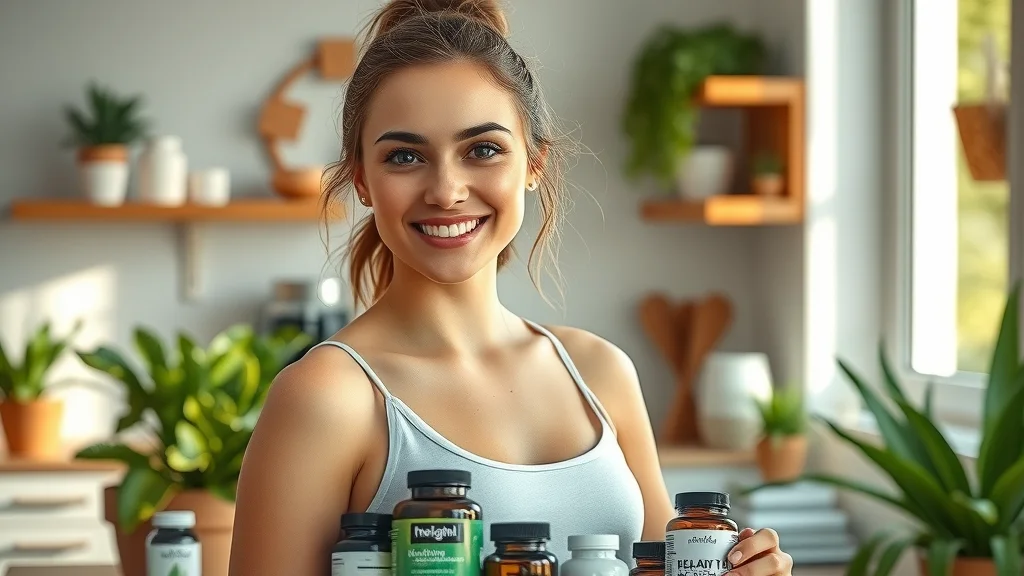

Write A Comment